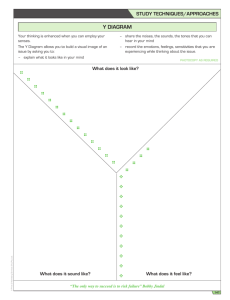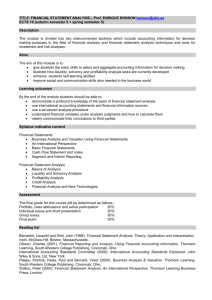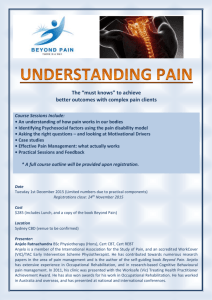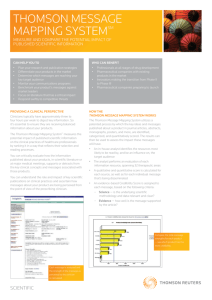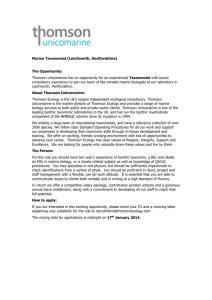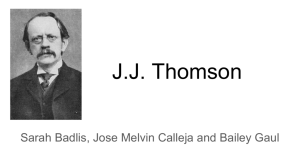A job in the lab with a difference Brent Thomson
advertisement
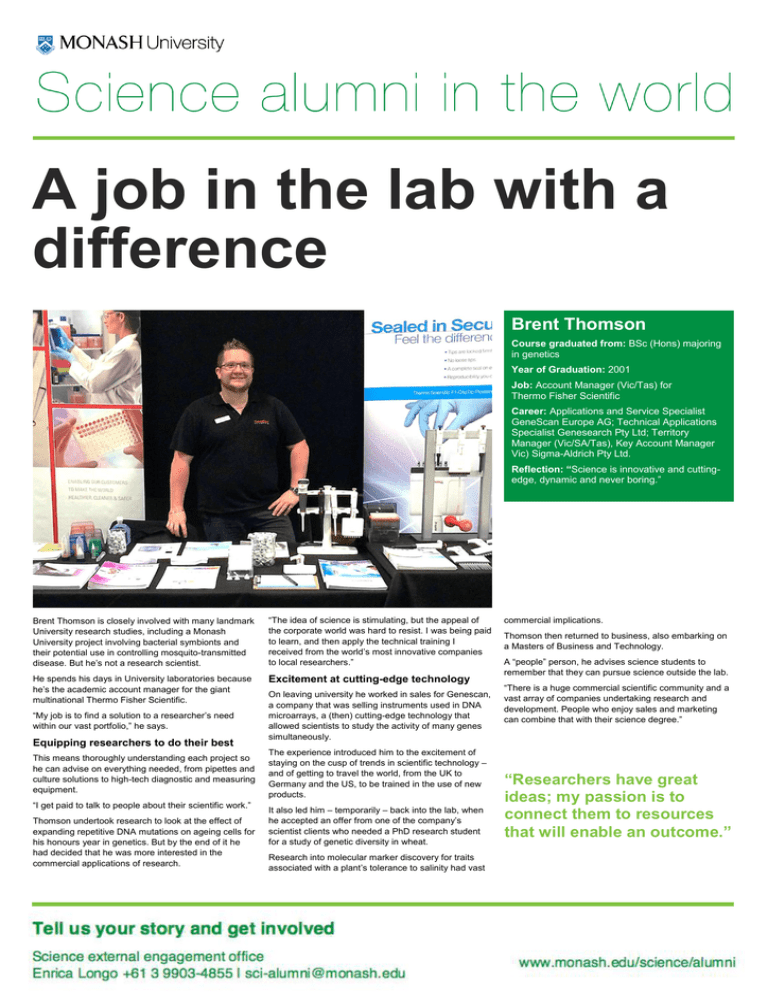
A job in the lab with a difference Brent Thomson Course graduated from: BSc (Hons) majoring in genetics Year of Graduation: 2001 Job: Account Manager (Vic/Tas) for Thermo Fisher Scientific Career: Applications and Service Specialist GeneScan Europe AG; Technical Applications Specialist Genesearch Pty Ltd; Territory Manager (Vic/SA/Tas), Key Account Manager Vic) Sigma-Aldrich Pty Ltd. Reflection: “Science is innovative and cuttingedge, dynamic and never boring.” Brent Thomson is closely involved with many landmark University research studies, including a Monash University project involving bacterial symbionts and their potential use in controlling mosquito-transmitted disease. But he’s not a research scientist. “The idea of science is stimulating, but the appeal of the corporate world was hard to resist. I was being paid to learn, and then apply the technical training I received from the world’s most innovative companies to local researchers.” He spends his days in University laboratories because he’s the academic account manager for the giant multinational Thermo Fisher Scientific. Excitement at cutting-edge technology “My job is to find a solution to a researcher’s need within our vast portfolio,” he says. Equipping researchers to do their best This means thoroughly understanding each project so he can advise on everything needed, from pipettes and culture solutions to high-tech diagnostic and measuring equipment. “I get paid to talk to people about their scientific work.” Thomson undertook research to look at the effect of expanding repetitive DNA mutations on ageing cells for his honours year in genetics. But by the end of it he had decided that he was more interested in the commercial applications of research. On leaving university he worked in sales for Genescan, a company that was selling instruments used in DNA microarrays, a (then) cutting-edge technology that allowed scientists to study the activity of many genes simultaneously. The experience introduced him to the excitement of staying on the cusp of trends in scientific technology – and of getting to travel the world, from the UK to Germany and the US, to be trained in the use of new products. It also led him – temporarily – back into the lab, when he accepted an offer from one of the company’s scientist clients who needed a PhD research student for a study of genetic diversity in wheat. Research into molecular marker discovery for traits associated with a plant’s tolerance to salinity had vast commercial implications. Thomson then returned to business, also embarking on a Masters of Business and Technology. A “people” person, he advises science students to remember that they can pursue science outside the lab. “There is a huge commercial scientific community and a vast array of companies undertaking research and development. People who enjoy sales and marketing can combine that with their science degree.” “Researchers have great ideas; my passion is to connect them to resources that will enable an outcome.”
